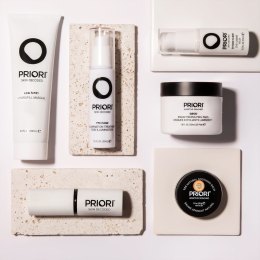CIDESCO has called on its global membership to help protect the environment and health of the planet by replacing their skincare products containing microbeads with safer alternatives.
Over the past 60 years plastic has become central to our lives and it’s only more recently that we’re discovering that it has come at a price. The price is the danger it is causing to the environment.
While news about the Plastic Garbage Islands in our oceans might have alerted us to limit our use of plastic bottles and containers, it has more recently come to light that it’s not just the bottles we should be concerned about but also their plastic ‘microbeads’ contents. Studies have shown that fish often mistake microbeads for food and eat them, resulting in toxins further up the food chain.
Plastic microbeads are used in some cosmetic products including scrubs, exfoliators, cleansers and soaps. In California alone, approximately 471 million plastic beads are released into San Francisco Bay every day. This has resulted in The State Assembly of California passing a bill banning plastic microbeads used in these products with other States in the process of doing the same. The Netherlands has already banned the use of microbeads across the country.
 “Plastic pollution has become a man-made global catastrophe. As a worldwide organisation we know that together our members can make a difference in helping to prevent this situation getting worse. We have therefore issued an appeal to all our members to review the products they are using and where necessary swap the products containing microbeads with safe alternatives,” says CIDESCO’s President, Anna-Cari Gund (left).
“Plastic pollution has become a man-made global catastrophe. As a worldwide organisation we know that together our members can make a difference in helping to prevent this situation getting worse. We have therefore issued an appeal to all our members to review the products they are using and where necessary swap the products containing microbeads with safe alternatives,” says CIDESCO’s President, Anna-Cari Gund (left).
Commenting on the issue, Steve Malkin, CEO of Planet First, a specialist in sustainable business practice, “You cannot remove microbeads from the environment as they are too small to catch in water treatment and they don’t degrade. The danger is that they will sit in our oceans and lakes forever to be ingested by fish and molluscs, damaging our ecosystems and entering our food chain.
“The solution is for companies to stop producing products with microbeads and to use natural alternatives. It’s better for the planet, us and our fellow species.”




